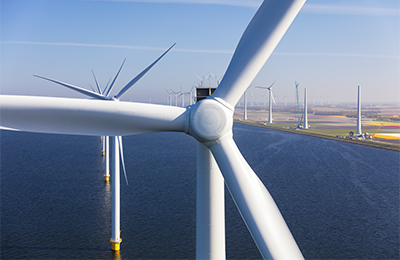Societal norms and beliefs regarding large-scale renewable energy and decarbonization strategies
 Project Description
Project Description
New Jersey is expected to be a national leader in offshore wind and develop enough offshore wind to power 3.2 million homes by 2035. Offshore wind is also slated for development by other East Coast states, including Rhode Island, Massachusetts, New York, Delaware, Maryland, and Virginia. Researchers are using New Jersey as a case study to understand how people are influenced by peers in their support for offshore wind electricity. Much of the information that individuals learn about a complex topic like offshore wind energy is not from personal investigation, but learned from other people.
“Do most people in my state think offshore wind will lower or raise energy prices? Do most people think developing offshore wind farms will be good or bad for my local economy? Do most people in my political party support this?”
The answers to such questions largely impact one’s own support for offshore wind and other energy technologies. While most approaches to understanding how one may be influenced by peers typically examine only one or two beliefs about what others think, this project strives to map dozens of beliefs, described as a “norms cluster,” and determine how they are interrelated and impact individuals’ support for offshore wind. By understanding which beliefs are most influential, this work aims to inform how to leverage one’s social reality to cultivate strong support for offshore wind, and hasten its construction.
Researchers
Gregg Sparkman; Elke Weber